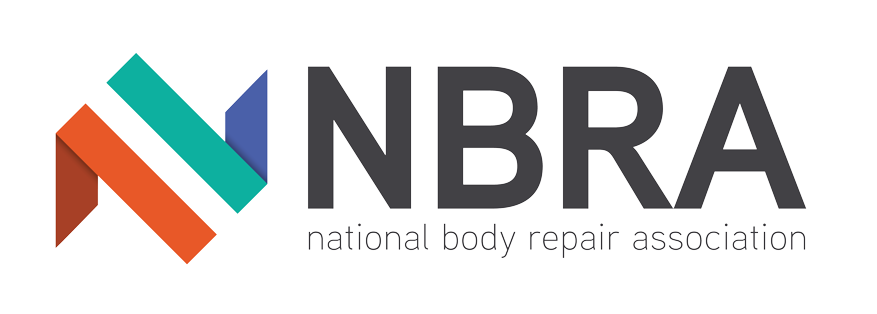
With the impact of the coronavirus lockdown across the repair industry, the NBRA is advising bodyshops to examine their fixed costs and switch to flexible variable costs where possible.
In a period of major uncertainty, flexibility offers the opportunity to not only control but reduce cost. NBRA found that replacing some courtesy cars with a flexible rental model enables bodyshops to flex their mobility provision up and down as circumstances warrant and respond appropriately to repair volume. Repairers who had a flexible model during the worst of Covid-19 volume reductions benefitted from having lower inescapable fixed costs to absorb.
At the moment, there is limited support on other fixed costs such as property rents and software licences. The government’s furlough scheme has allowed for some flexibility on staffing costs.
Courtesy cars are a fixed cost that can be turned into a variable, especially as the summer is a time when many leases are due for renewal.
Many bodyshops have already adopted a flexible rental model to supplement their existing fleets in periods of high demand.
Rental companies are now offering special programmes to provide part or full outsourcing of courtesy cars. These schemes are available across the country and can provide a temporary or permanent opportunity to reduce the fixed cost burden.
Rethink summer lease renewals
As summer approaches, most repairers are deciding if they should renew or extend their leases on their courtesy cars as termination dates draw near. NBRA found that many businesses ‘sleepwalk’ into renewals. They may not be aware of more flexible options that may reduce costs, especially with the possibility of a further lockdown in the future and general uncertainty of repair volumes.
Right now, with traffic levels so low, there are thousands of leased courtesy cars sitting idle and yet still costing money. The NBRA advises repairers to consider replacing some (or maybe all?) of their fleets with rentals. Whilst the true cost of rental vs. lease is a matter of debate, if there is a risk of a large fixed cost fleet sitting idle in the future it is an option that needs serious consideration.
Car hire companies specialise in rentals, so mobility for the customer will continue. They will discuss service levels and procedures that will deliver the right customer care for your business. They usually already work directly with many insurance companies and so understand the needs of policyholders.
Most importantly, it gives you a huge amount of flexibility in an incredibly uncertain time.
What should bodyshops do?
The NBRA is aware that repairers cannot possibly plan for the right number of courtesy car leases in the face of such incredible uncertainty.
Not all fixed costs can be controlled during this pandemic, but one at least is absolutely in your hands. Changing courtesy car provision from a fixed to a variable cost, by replacing leases with rentals, can we have found, help you ride out the current situation and futureproof your business. A mixture of lease and rental is likely to be a more cost-effective solution to enable you to flex according to demand.
As part of your current business planning, examine and explore your options when it comes to providing courtesy cars to customers. If you are a multi-site repairer, determine which locations are most likely to need more or fewer vehicles. Speak to rental companies to establish to explore the options.
After six months, if you realise that vehicle leases made more financial sense after all, you are not losing out by switching back from rental.
Case study
NBRA spoke to The Vella Group who followed this approach fully and have been able to adjust the use of courtesy cars directly in line with the fluctuating demand for repair through the Covid-19 lockdown. This is a result of using rental cars only as and when customers have required them.
“There is no point having a fleet of cars sitting idle in the repair centres,” said the Vella Group MD Marc Holding. “We introduced the rental programme over four years ago to help us become more efficient during a period of growth. It is now helping us to control costs at a time when demand has gone down dramatically because of the travel ban.
“Rental has enabled the Vella Group to adjust to the situation, literally on a day by day basis. We only pay for what we use, which provides a considerable saving, especially when compared to the many fixed costs repairers carry.”
The Vella Group has also made sure that it has taken advantage of schemes available to businesses to support them through the Covid-19 crisis. The Coronavirus Job Retention Scheme has been particularly useful in ensuring that livelihoods have been protected and employees supported financially.
Through the lockdown, the company has been managing repair volumes across a wider geographical footprint, while also ensuring that processes have adapted to deal with the impact of social distancing on customer service. Delays in parts availability have contributed to longer repair times on some vehicles, which has meant that there has been a greater focus on customer mobility.
While the repair centres focus on the repair, the rental provider delivers mobility to customers and has modified its already rigorous cleaning procedures, based on local health authority guidelines. On top of vacuuming and general wipe-down cleaning, branches are using disinfectant to sanitise key areas between every rental.
The Vella Group originally adopted daily rental to unburden employees from the many laborious processes involved in managing an increasingly large fleet of courtesy vehicles.
As a result, the Vella Group also saw a two-day reduction in ‘key to key’ times as the operation became more focused on customer service and repairs.
“The ongoing situation is going to remain unpredictable,” concluded Marc Holding. “Sometimes we see a reduction in demand for courtesy cars because people are working from home rather than travelling, while other customers are avoiding public transport and urgently require a vehicle.
“We can flex our fleet to meet demand and also don’t have to worry about cleaning vehicles between customers ourselves.
“Guaranteed mobility offers an important level of emotional support at a time of great uncertainty for our customers, many of whom are key and essential workers. Daily rental means we can continue to offer the service while only accessing vehicles when we need them, and therefore completely controlling the costs.
“With the added health and safety measures, we can be confident that our customers’ wellbeing is also being taken care of.”
Chris Weeks,
NBRA Director



